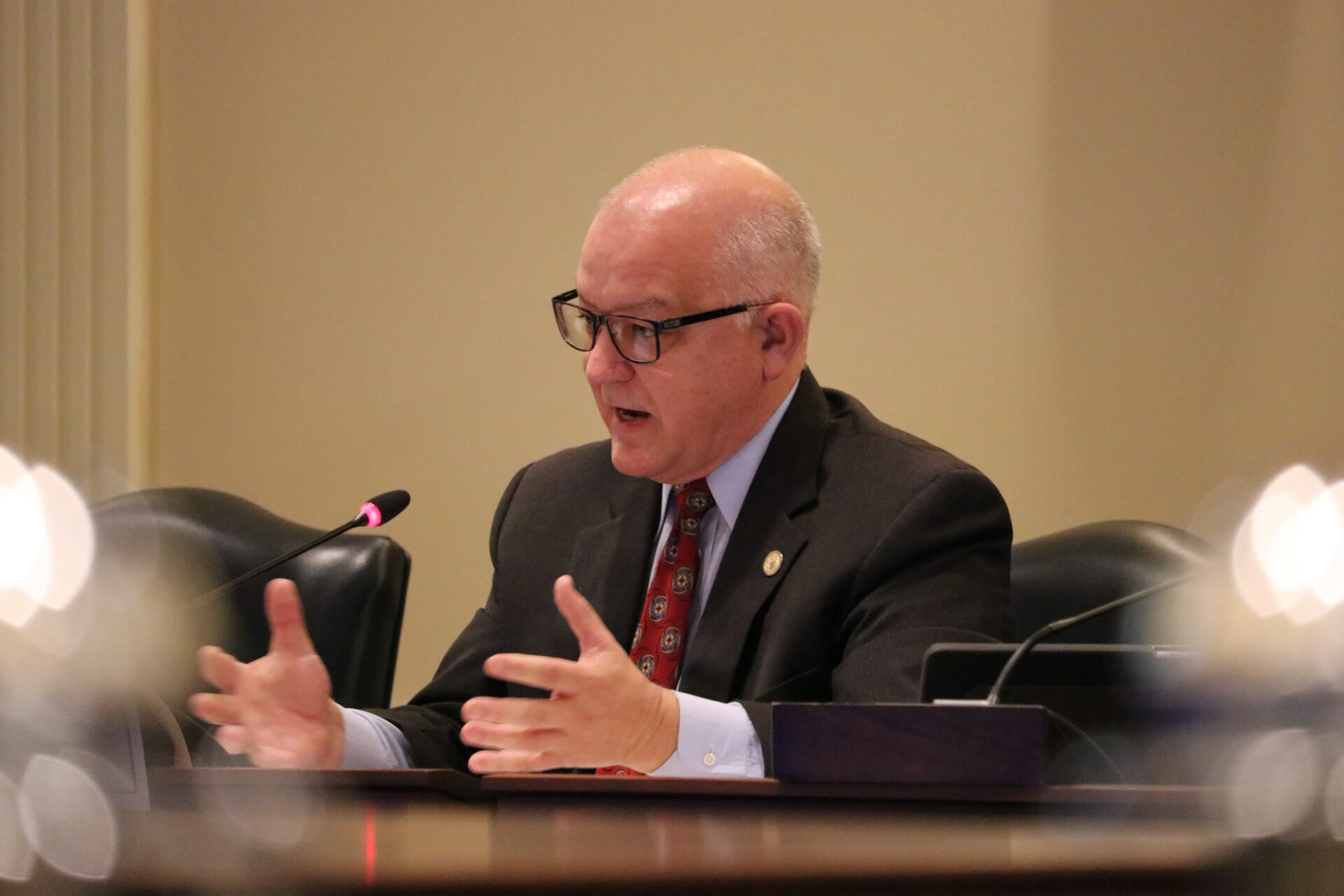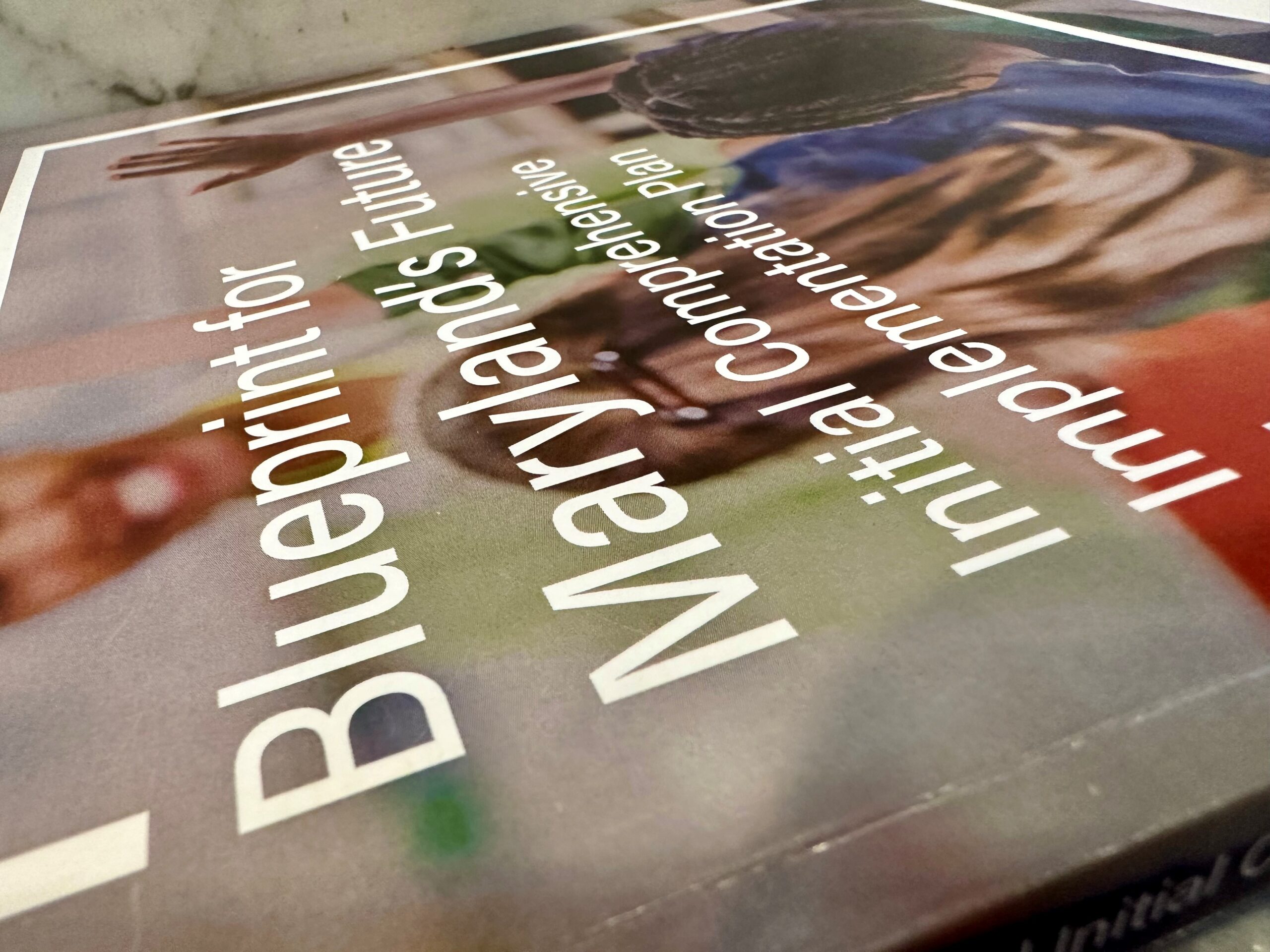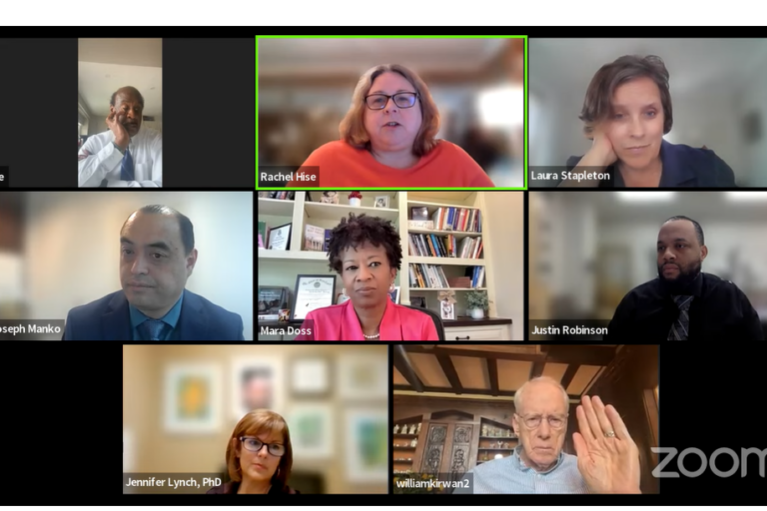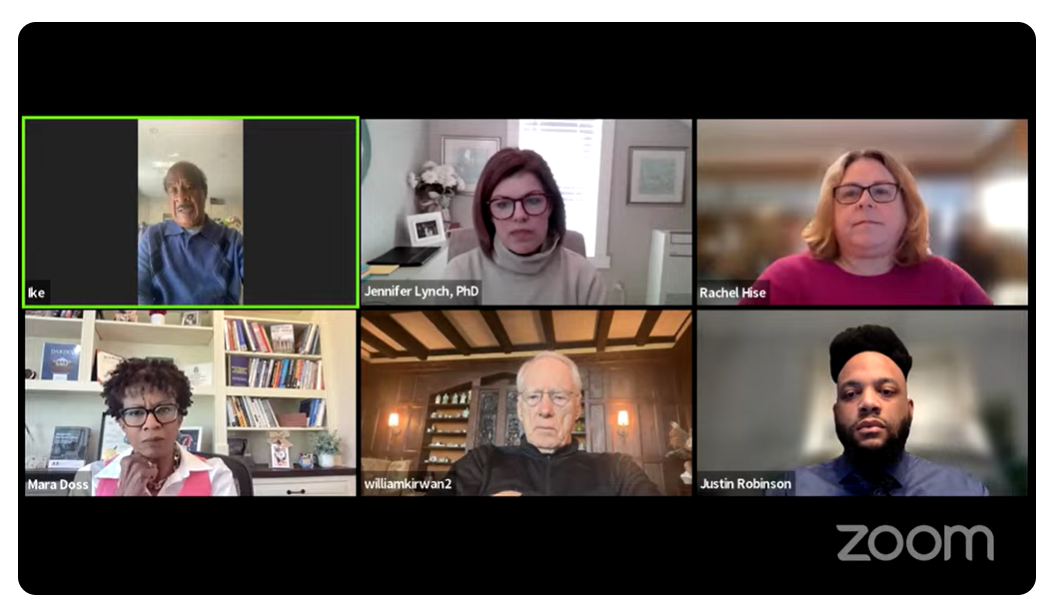Kirwan Panel Crunching Ed Funding Formulas – Behind Closed Doors

Members of a state workgroup that has been meeting publicly since June to draw up new state education funding formulas is now getting down to analyzing gritty details – in private.
The Blueprint for Maryland’s Future Funding Formula Workgroup – a spinoff of the Kirwan Commission on Innovation and Excellence in Education that proposed sweeping reforms to public education – voted 8-4 on Thursday to spend an afternoon in closed session crunching numbers that are critical to state and county education funding and budgets.
House Appropriations Chairwoman Maggie L. McIntosh (D-Baltimore City), a member of the workgroup, made the motion to meet behind closed doors.
The move to closed session was opposed most vociferously by state Budget Secretary David R. Brinkley, who has also raised concerns about the education reform proposals that could cost up to $3.8 billion more annually once fully in place.
Brinkley said the workgroup was undeniably a public body and should be governed by Maryland’s Open Meetings Act, which restricts closed sessions to certain topics such as litigation or personnel matters.
However, the workgroup and commission chairman, William E. “Brit” Kirwan, as well as legislative staff said the workgroup does not fall specifically under the Open Meetings Act because it was not created by an act of the General Assembly. The broader commission, which was created by a bill, is governed by the act.
The workgroup, which includes many of the same members, was appointed by the House speaker and Senate president in June.
Legislative policy analyst Rachel Hise, the workgroup’s main staffer, said the panel had received guidance from the Office of the Attorney General indicating that it was allowed to legally meet in closed session for any reason after a vote of the panel. A copy of the guidance was not provided to workgroup members who requested it before a vote, but a letter dated Thursday was later provided to members of the media who requested it.
[Read the letter from the Office of the Attorney General.]
Kirwan said the purpose of tinkering with the funding model in closed session was to speak candidly about the effects of the formula, which could mean dramatic changes for some counties’ education funding. Airing the potential consequences of changes to each part of the formula could cause unnecessary alarm, Kirwan said.
“I personally think it would be a disservice to the public to see numbers that would have no real meaning and it would be very confusing to see iterations that people would get all excited or upset over information that will never come to be,” he said.
He promised that the workgroup would be making no decisions during the private meeting.
“This body will make no decisions except in public session,” Kirwan said.
He was opposed in his decision to close the meeting by Dr. Alvin Thornton, the Prince George’s County school board president and retired Howard University administrator who led the state’s last major rewrite of funding formulas in the early 2000s.
“I don’t fully understand the need for that not to be discussed in front of the public,” Thornton said. “That’s all.”
Also opposing the motion to carry the workgroup’s work into closed session was Cheryl Pasteur, a former principal and member of the Baltimore County Board of Education, and Harford County Executive Barry Glassman (R).
Before the vote, Glassman asked if workgroup members would get copies of the formula program which they could take back to their colleagues for further examination. Glassman, who is also president of the Maryland Association of Counties, said he wanted a copy to share with that organization.
Kirwan said a copy wouldn’t be given, but Glassman could take any information he gleans from the session to his colleagues.
Several Republican members of the legislature and other organizations milled about after the contentious vote. Sen. Mary Beth Carozza (R-Lower Shore) asked if she could be let into the closed session as a member of the broader Kirwan Commission, as did former Sen. Gail H. Bates (R), who is now the State Board of Education’s representative on the full commission. Both, who are not part of the workgroup, were not invited to the session.
Senate Minority Leader J.B. Jennings (R-Baltimore County) said the move would cast a dark cloud over the education funding process.
“This is where people lose trust in government,” Jennings said. “This is a backroom deal that’s taking place. It’s wrong. We’re talking billions of dollars to come up with a formula.”
Jennings, who was en route to another meeting, said he stopped in Annapolis to try to keep the session from closing.
“To me, they’re going into executive session to cook up a formula,” he said.
A spokesman for Gov. Lawrence J. Hogan Jr. (R), who has opposed increasing taxes to pay for the commission recommendations, blasted the move to go into closed session.
“It is bad enough that the Kirwan Tax Hike Commission still refuses to come clean about the cost of their plans. Now they are resorting to illegally meeting in secret to try and prevent Marylanders from hearing the truth about these massive tax hikes. While legislators scheme behind closed doors to raise taxes, the governor will continue to fight for accountability and transparency in our schools,” spokesman Michael Ricci wrote in an email.
The workgroup and commission have not committed to raising taxes to pay for the proposed education reforms. A legislative panel is studying whether to legalize and tax recreational marijuana to increase funds available for education, and other proposals, like establishing sports betting and studying existing tax incentive programs, have also been discussed.
On Thursday, The Washington Post reported that a fundraising entity connected to Hogan is seeking to raise $2 million from top supporters to target, among other things, the Kirwan Commission’s proposed spending plan.




 Creative Commons Attribution
Creative Commons Attribution